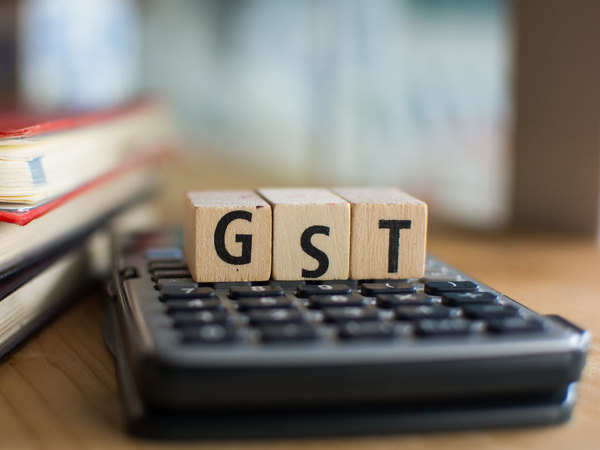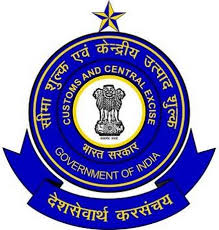1. Introduction
In this article we will delve upon the time limit of availing of input tax credit (ITC) on debit note. As per Section 34(3) of the CGST Act,2017 in cases where taxable value or tax payable in respect of a supply, charged in a tax invoice is found to be less, the supplier shall issue debit note(s) for supplies made in a financial year.
The debit note shall contain the particulars as prescribed by Rule 53(1A) of the CGST Rules,2017 which basically covers the particulars required to be disclosed on a tax invoice along with serial numbers and date of the corresponding tax invoice(s).
The supplier will therefore be charging the applicable GST on the taxable value (earlier less claimed) being charged in debit note or the GST amount less charged in the tax invoice. The details of such a debit note shall be declared by the supplier in Table 9 of GSTR-1 for the month during which debit note has been issued. However in case of supplies to unregistered persons where invoice value is upto Rs 2.50 lakh the value of taxable supplies (including debit notes) will be reflected in Table 7 of GSTR-1. Due tax will accordingly be paid while filing GSTR-3B either through electronic cash or credit ledger.
On the basis of disclosure of debit note in the GSTR-1, the credit of tax would be reflected in GSTR-2A of the recipient of supply.
2. Admissibility of input tax credit of tax charged in debit note
As per Section 16(2)(a) of the CGST Act, 2017 read with Rule 36(1)(c) of the CGST Rules, 2017, input tax credit can be availed by a registered person on basis of possession of a debit note issued by the supplier in accordance with the provisions of Section 34.
Needless to mention that input tax credit can effectively be availed where the inward supply is used for business purposes or making outward taxable supplies as per provisions of Section 16 and 17 of the CGST Act,2017.
3. Time limit for availing of ITC of tax charged in debit note
The time limit of availing of input tax credit is mandated under Section 16(4) of the CGST Act, 2017 which mandates that input tax credit of a debit note cannot be availed after due date of furnishing of return under Sec 39 (viz GSTR-3B) for the month of September following the end of financial year to which such invoice relating to such debit note pertains or furnishing of relevant annual return, whichever is earlier. Due to extension of due dates of filing of annual returns the criteria of annual return has practically lost relevance for determining the time limit.
Though there are arguments suggesting that above time limit is infructuous considering that GSTR-3B is not a return under section 39 and further considering that Section 16(2) overrides Section 16(4) also. However without going into this debate lets discuss the provision in verbatim.
Lets understand the above provision with help of an illustration:
X Ltd has supplied goods to Y Ltd on 01.05.2018. Later it identified that it has charged an amount of Rs 10,000/- less in the tax invoice raised in May,2018 and accordingly he raises a debit note on 01.11.2019 for an amount of Rs 11,800/- after loading 18% GST. Now the question arises whether Y Ltd can avail the ITC of Rs 1800/-.
The answer will be no as time limit of availing ITC on debit note is linked to that of invoice. In this case as the invoice was issued in May,2018 i.e. FY 2018-19, the ITC thereon could have been availed till 20.10.2019 i.e. due date of furnishing of GSTR-3B for September,2019, considering annual return was not filed till then. Now this will really be hardship as debit note has itself been issued by supplier on 01.11.2019 and thus it is not possible to avail credit thereof by 20.10.2019.
4. Amendment in time limit of availing ITC on debit note, by Finance Act, 2020
Considering the above position and hardship faced by tax payers due to time barring of ITC on debit note, amendment has been made in Section 16(4) of the CGST Act,2017 by Section 120 of the Finance Act,2020, whereby the words “invoice relating to such” in Section 16(4) are omitted.
For appreciating the change the Section 16(4) before and after amendment is tabulated below:
| Before Amendment | After Amendment |
| SECTION 16. Eligibility and conditions for taking input tax credit(4) – A registered person shall not be entitled to take input tax credit in respect of any invoice or debit note for supply of goods or services or both after the due date of furnishing of the return under section 39 for the month of September following the end of financial year to which such invoice or invoice relating to such debit note pertains or furnishing of the relevant annual return, whichever is earlier. | SECTION 16. Eligibility and conditions for taking input tax credit(4) – A registered person shall not be entitled to take input tax credit in respect of any invoice or debit note for supply of goods or services or both after the due date of furnishing of the return under section 39 for the month of September following the end of financial year to which such invoice or |
However it is important to note here that the provisions of Section 120 of the Finance Act, 2020 has not yet been brought into force as Notification in this regard under GST Act(s) has not yet been issued. Though some of the Sections of Finance Act, 2020 have been enforced by issue of Notifications, but no such Notification has been issued in regard to enforcing Section 120.
5. Whether amendment will be applicable on retrospective effect
Section 120 of Finance Act,2020 has not made the amendment in Sec 16(4) from retrospective effect as was the case in regard to amendment in Section 140 of the CGST Act, wherein Section 128 of the Finance Act clearly stated that the amendment will be with effect from 01.07.2017.
Thus it seems that the amendment in Section 16(4) will be made operative on prospective basis whenever Notification is issued in this regard and the debit notes issued before such date will be deprived of the benefit granted in respect of Debit notes by Section 120 of the Finance Act,2020.
In our view this amendment could have been made from retrospective effect as the Government has eventually realized that provision of Sec 16(4) in regard to debit notes was a hardship and thus same was proposed to be cured by Finance Act,2020.
“Errors do not cease to be errors simply because they’re ratified into law”
***
[rainbow]Don’t miss the next GST Update / Article / Judicial pronouncement[/rainbow]
Subscribe to our newsletter from FREE to stay updated on GST Law
Resolve your GST queries from national level experts on GST free of cost.
Frah Saeed is a law graduate specializing in the core field of indirect taxes and is the Co-founder of taxwallah.com. She has authored many publications on GST and is into full-time consultancy on GST to big corporates. She as a part of taxwallah.com heads a team comprising of Chartered Accountants and Advocates and plays a key role in our mission to disseminate GST knowledge to all.





Yes this is essentially to remove an anomaly situation and should definitely be read with retrospective effect. Plus unless there is underlying debit note document sec 16 will not permit.
Agree Sir.. But Sec 120 of Finance Act, 2020 doesn’t specify that this amendment would be effective from 01.07.2017. Lets hope it actually is, when the Notifications are issued for making amendment operative.
Team Clearmytax.in